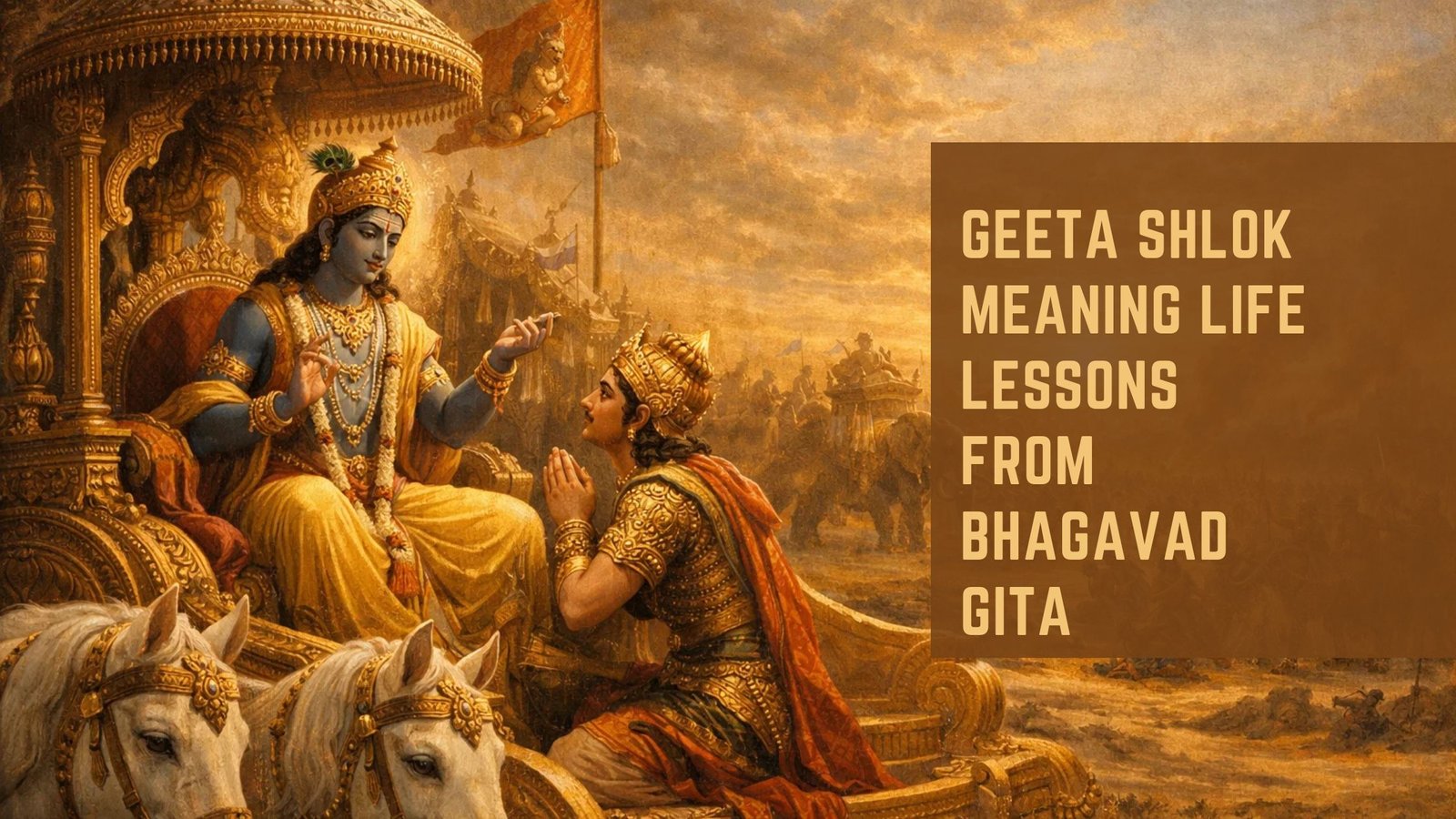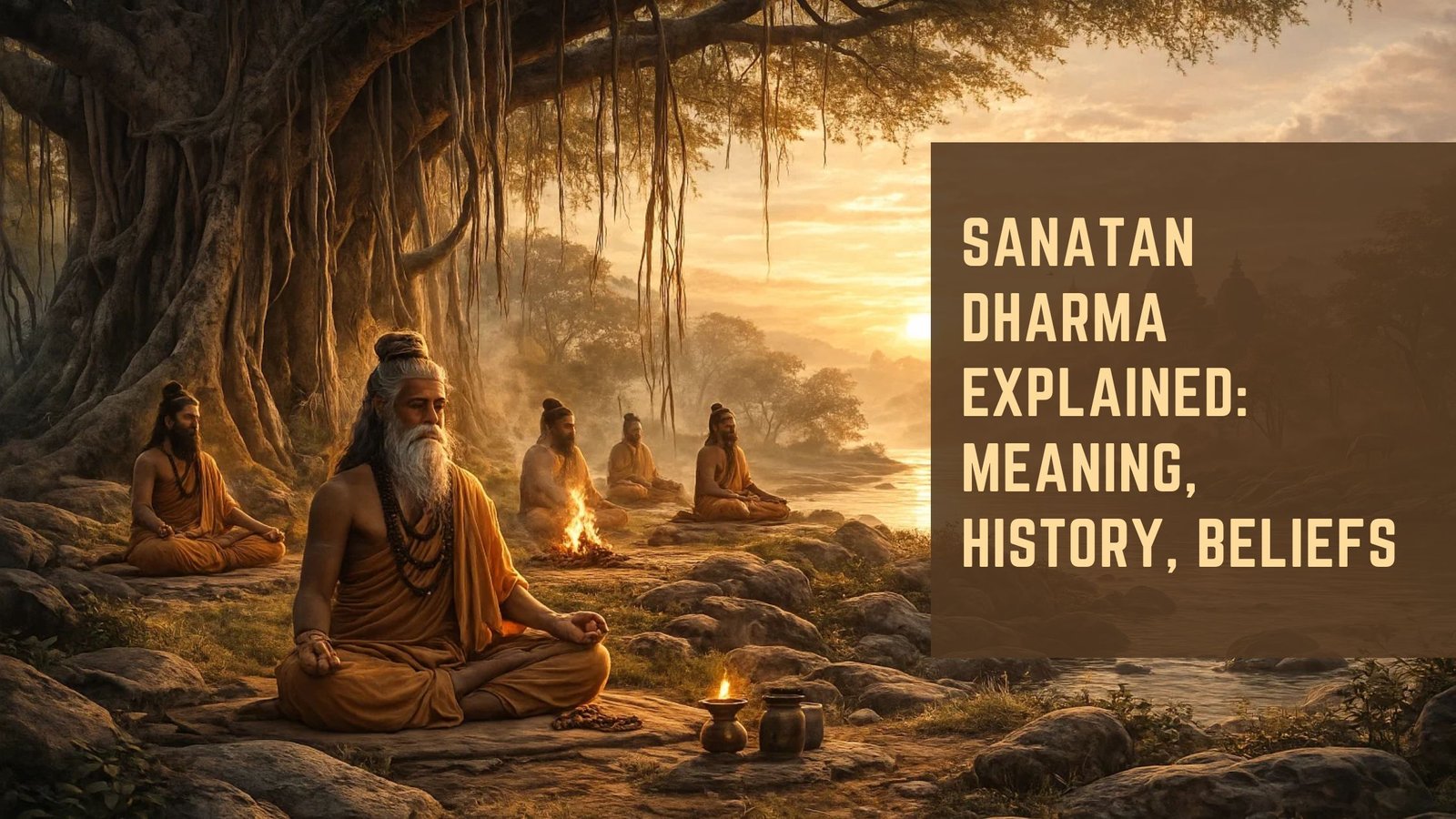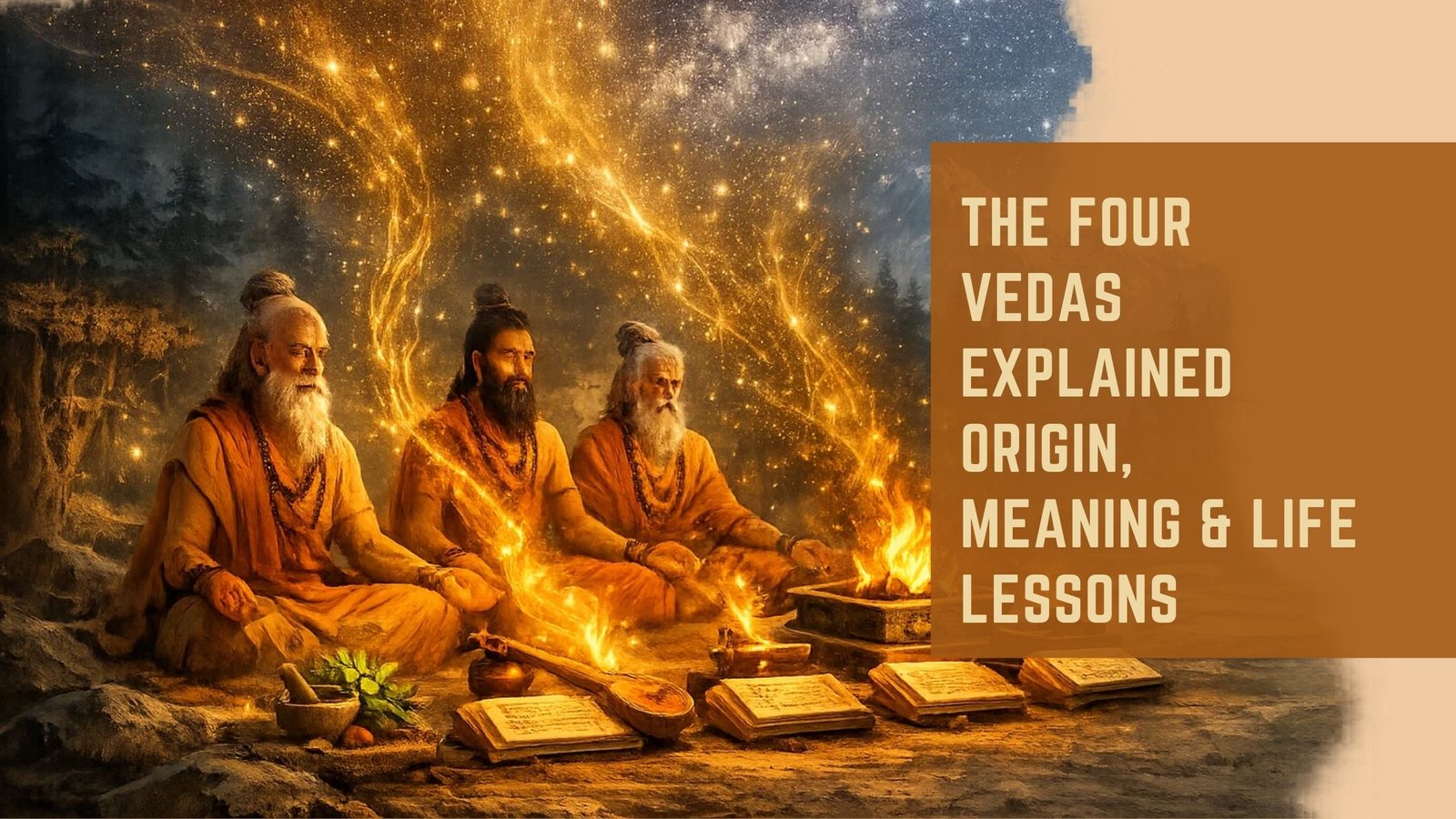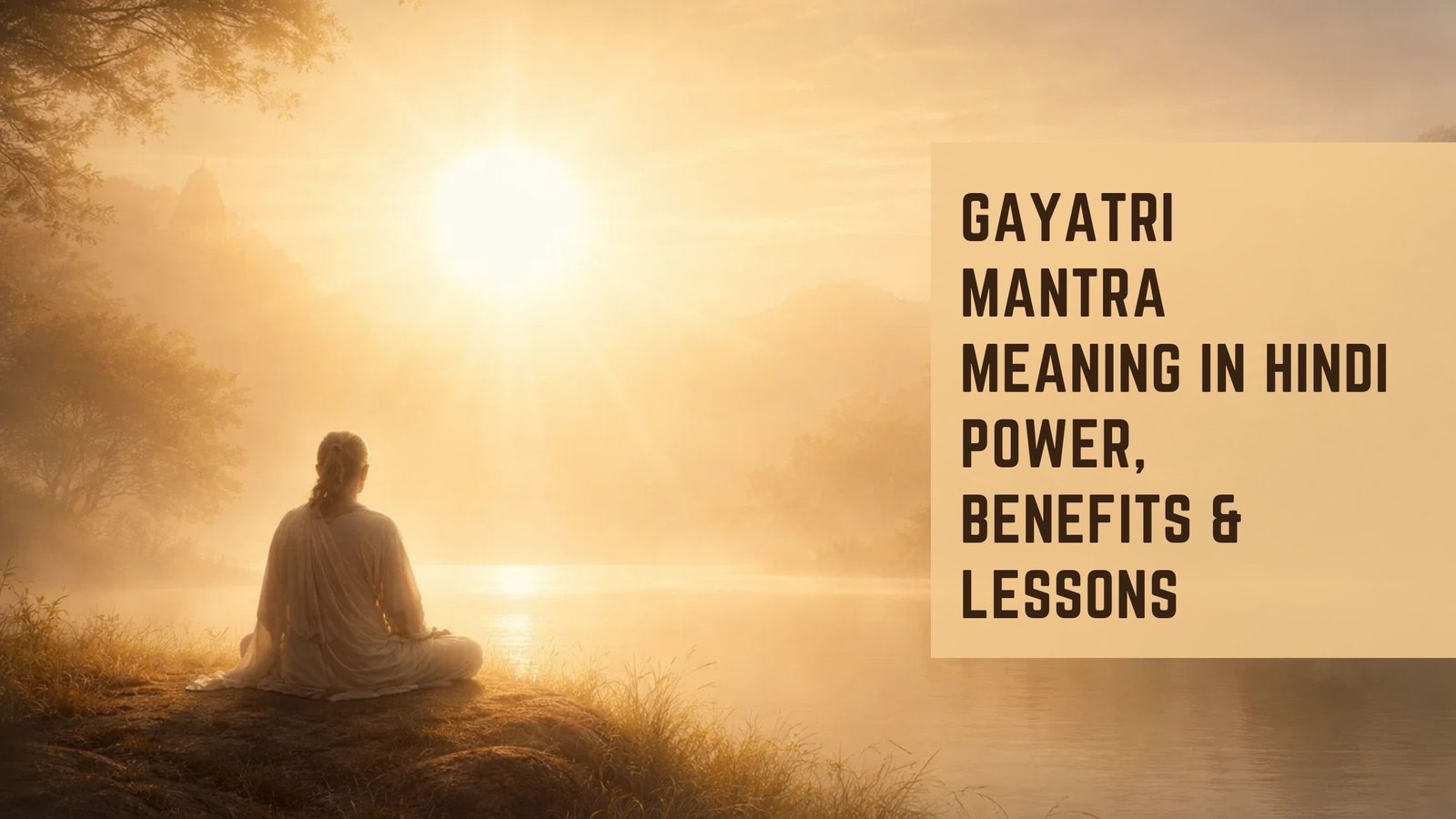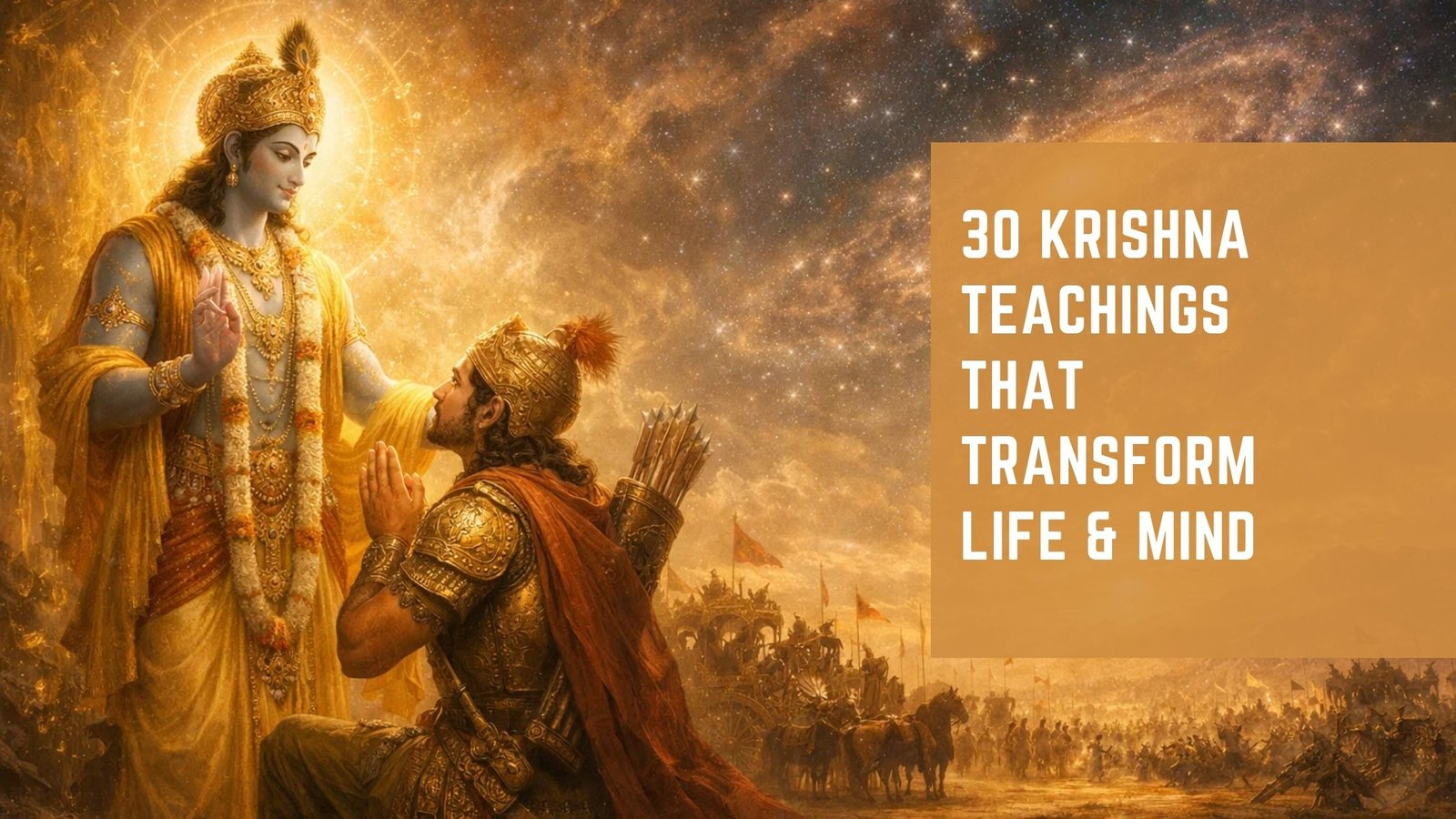Bhagavad Gita Chapter 2, titled Sankhya Yoga or The Yoga of Knowledge, marks the turning point in the conversation between Lord Krishna and Arjuna. This chapter reveals profound insights about life, duty, the eternal soul, and the path to spiritual realization. Arjuna, in a moment of crisis on the battlefield of Kurukshetra, is grappling with moral dilemmas and emotional turmoil. He faces the challenge of fulfilling his duty as a warrior while being torn by personal attachments. In response, Lord Krishna imparts deep philosophical teachings to guide Arjuna through his internal conflict.

Key Teachings from Bhagavad Gita Chapter 2:
1. The Eternal Soul: The True Nature of Self
Krishna begins by explaining to Arjuna the nature of the soul. According to Krishna, the soul (Atman) is eternal and indestructible. It does not die when the body perishes. This teaching forms the foundation of understanding human existence and suffering. Bhagavad Gita Chapter 2 encourages Arjuna to understand that his identity is not tied to the physical body, which is temporary, but to the eternal soul that transcends birth and death.
“The soul is never born, nor does it die; it is eternal, it is without birth, and it is imperishable.”
(Bhagavad Gita 2.20)
This realization helps Arjuna rise above his fears and doubts, as it places his current situation into a broader perspective of the soul’s immortal journey.
2. The Importance of Duty (Dharma)
Krishna emphasizes the significance of performing one’s duty (dharma) without attachment to the results. Arjuna’s duty as a warrior is to fight for justice, and Krishna urges him to act selflessly. This teaching points to the concept of Karma Yoga – performing actions without attachment to their outcomes. Bhagavad Gita Chapter 2 makes it clear that fulfilling one’s responsibilities in alignment with divine will is the path to liberation.
“You have a right to perform your prescribed duties, but you are not entitled to the fruits of your actions.”
(Bhagavad Gita 2.47)
This message resonates with anyone struggling with the pressure of success and failure. It teaches detachment and encourages focusing on the process rather than obsessing over results.
3. The Nature of Suffering and Equanimity
In the midst of Arjuna’s emotional struggle, Krishna teaches him the importance of equanimity — remaining calm and balanced in the face of both success and failure. Krishna explains that the ups and downs of life are transient and part of the human condition. Achieving peace comes through understanding that both pleasure and pain are temporary experiences. True wisdom lies in facing both with equanimity.
“A person who is unaffected by pain and pleasure, who is unaffected by success and failure, and who is steady in mind, is said to be a true yogi.”
(Bhagavad Gita 2.14)
This section of Bhagavad Gita Chapter 2 offers profound guidance on cultivating inner peace, even in times of uncertainty and adversity.
4. The Path of Knowledge and Self-Realization
Krishna introduces Arjuna to the path of Jnana Yoga or the Yoga of Knowledge. This path is about self-realization — understanding the true nature of the self (Atman) and its connection to the Supreme Being (Brahman). Through wisdom and discernment, one can overcome ignorance and the illusion of separateness from the Divine. The teachings in Bhagavad Gita Chapter 2 point out that the key to peace lies in aligning oneself with the deeper truths of existence.
“When meditation is mastered, the mind is unwavering like the flame of a lamp in a windless place.”
(Bhagavad Gita 2.19)
This path is about recognizing the unity between the individual soul and the universal soul, leading to spiritual liberation.

5. The Importance of Steady Wisdom
Krishna encourages Arjuna to develop steady wisdom through dispassion, discrimination, and detachment. A true seeker is one who transcends the emotional upheavals of the mind and remains grounded in wisdom. The more one cultivates the intellect and detachment, the closer one becomes to the realization of the Self.
“Those who are wise see all beings equally, without discrimination or judgment, in their essential nature as the eternal self.”
(Bhagavad Gita 2.31)
A Lesson for Life
Bhagavad Gita Chapter 2 offers timeless wisdom for overcoming life’s challenges. It teaches us that true fulfillment comes from understanding our eternal nature, performing our duties selflessly, and cultivating an unwavering mind. Whether you are facing personal struggles, career dilemmas, or emotional turmoil, the teachings of this chapter guide you toward inner peace, equanimity, and a higher spiritual purpose.
Arjuna’s transformation in this chapter mirrors the journey of anyone seeking clarity in their lives. Just as Krishna guides Arjuna to rise above the battlefield of his emotions, so too can we rise above our own internal battles and embrace the path of wisdom, knowledge, and self-realization.
To explore more insightful explanations of the verses from the Bhagavad Gita and deepen your understanding of these timeless teachings, visit The Gita – Verse Explanations. Let Krishna’s wisdom guide you towards a life of inner peace and enlightenment.

